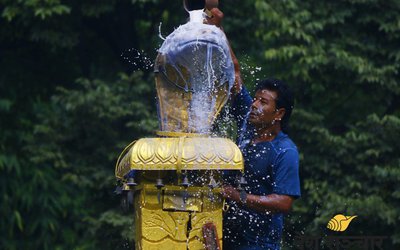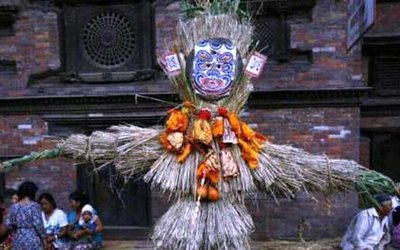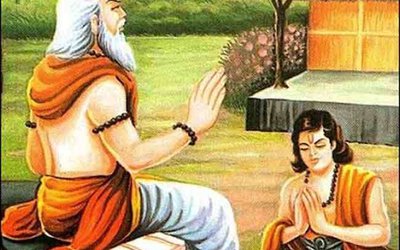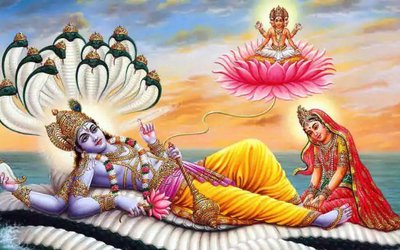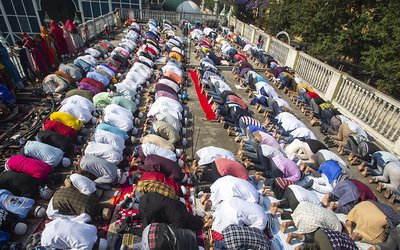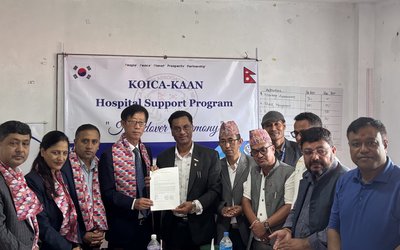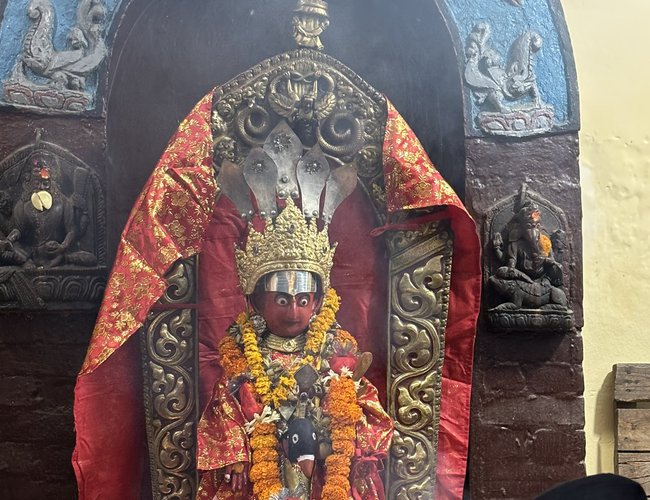
Photo Courtesy Sirjana Singh (X wall)
Today marks the auspicious Skanda Shasti, also known as Kumar Shasti, celebrated by Hindus in Nepal and India on June 2. It is a significant day
for the Newar community in Kathmandu, who observe Sithi Nakha, a festival focused on cleaning water sources.
Sithi Nakha is celebrated on the sixth day of the Hindu lunar calendar month and is dedicated to Lord Kartikeya or Skanda. The festival emphasizes water, livelihood, public health, environment, and personal hygiene.
During Sithi Nakha, people take a holy bath, perform Kulpooja for personal health hygiene, and prepare traditional dishes like 'Bara' and 'Chatamari' as offerings to their ancestral gods. The Newar community in
Kathmandu prepares a special Nepali dish made of lentils, beans, and peas as an offering to Kumar.
The festival lasts for four days, culminating in the celebration of Sithi Nakha. It is a time for community unity and environmental awareness, emphasizing the importance of water resources for all.
The Newar Community cleaned the idol of Sithi Kumar at Jaisidewal on Sunday as part of the four-day festival that culminates on Sithi Nakha day.
Skanda Shasti, which falls in Jyestha maas according to the Hindu Panchang, is dedicated to Lord Kartikeya or Skanda. This festival is named after the sixth day of the lunar fortnight in the Hindu lunar calendar.
Lord Skanda, also known as Kartikeya or Subramaniam, is the son of Goddess Parvati and Lord Shiva. Skanda Shasti marks Kartikeya's birth anniversary, and devotees observe fasts for six days or on the Skanda Shasti day.
During the festival, the Murugan idol is worshipped with sandalwood paste, rose water, kumkum, turmeric, and flowers. Incense sticks and a ghee lamp are lit, and aarti with camphor is performed. Devotees offer naivedya, including fruits, sweets, and sweet pongal, which is then distributed as prasadam.
Fasting individuals should stick to a milk diet and avoid solid food. After breaking the fast, a sattwic bhojan without garlic and onion is consumed. Chanting the Skanda Shasti Kavacham hymn, listening to Skanda Purana stories, and reciting bhajans are believed to purify the mind and uplift devotees spiritually.
The festival is celebrated with great devotion, enthusiasm, and grandeur.
Celebrating Sasthi Nakha
Sasthi Nakha is observed on the sixth day of the bright half of the month of Jetha (MAY/JUN). This festival commemorates the birthday of Kumar, the Hindu deity of war and one of Lord Shiva's sons. It is a time to express gratitude for Kumar's role in battling demons and helping the Gods reclaim their kingdom.
Devotees mark Sasthi Nakha by visiting Kumar's temple in the southern part of Kathmandu. This festival holds significance for the native inhabitants of the Panauti Valley, particularly the Newars of Panauti and Kathmandu Valley. On this day, they prepare a traditional Nepali dish consisting of maas (black lentil), mugi (kidney beans), kasu (small peas ground), and bodi beans, which they offer to Kumar.
After making these offerings, they partake in the feast. The following day, a procession featuring Kumar seated on a peacock chariot begins from Hanumandhoka Durbar Square. Men carry the chariot through the streets of Kathmandu, accompanied by a group playing musical instruments. The peacock symbolizes Kumar's qualities as a warlord, with its slow and cautious movements, quick changes, and ability to take flight – all attributes essential for an advancing army.
Sasthi Nakha also signifies the conclusion of Diwali, an annual festival during which Nepalese families worship their household deities. Families who are unable to observe Diwali for various reasons use this day to seek forgiveness from their family deities and honor Kumar. Another notable aspect of the festival is the tradition of cleaning wells and springs, which were once the primary sources of drinking water before the introduction of filtered water through pipes and taps.
The Newa community celebrates Sasthi Nakha, a traditional festival, by cleaning water sources just before the start of the monsoon. Newa cultural experts explain that typically, the Newa community marks Sasthi Nakha by cleaning water sources such as wells, ponds, and stone spouts. The celebration culminates in a grand Newari feast featuring six different varieties of Newari food, including Wo (fried lentil bread) and Chatamari (a Nepali special pizza).
This festival, observed on the birthday of Kartikeya, the son of Lord Shiva and Parvati, is a way to welcome the rainy season. During this day, houses, courtyards, streets, and alleys are also cleaned. It is believed that cleaning these water sources will bring rain for successful crop cultivation. Additionally, Sasthi Nakha is celebrated to usher in the monsoon, which is the ideal time to prepare rice seedbeds.
Sasthi Nakha is a Newar festival that occurs at the beginning of the rainy season. Newars honor Kartikeya or Kumar, the son of Lord Shiva and Parvati, by offering a small feast with traditional Newar dishes like Wo and Chatamari, and by cleaning nearby water resources. This festival also serves as the final day for making annual offerings to ancestral or guardian deities within the Newar community.
The term "Sasthi" is derived from the Sanskrit word "Shashthi," meaning sixth, and "nakha" in the Newar language, or Nepal Bhasha, signifies festival. Therefore, the name Sasthi Nakha is used because it falls on the sixth day of the bright fortnight in the month of Jyestha in the Bikram Sambat calendar. It is also referred to as Kumar Shashthi.
It's a day dedicated to worshipping 'Pikhalakhu,' which symbolizes the rivers nearby. 'Pikha' means outside, and 'lakhu' refers to the rivers in the vicinity. Pikhalakhu, a small circle or mandap drawn outside each household in the Newar community, is considered the place of Kumar. The tradition of cleaning wells, ponds, and stone spouts on this day holds significant cultural value for the Newar community.
Environmentalists have recognized the festival's connection to social and environmental awareness issues. UN-Habitat has included Sasthi Nakha in its brochure as a festival that should be nationally supported to preserve water sources and promote rainwater harvesting."
- Diplomatic Efforts On For Search, Rescue Of Nepalis Missing In Uttarakhand Floods: Minister Rana
- Aug 08, 2025
- PM Oli Expresses Sorrow Over Flood-Triggered Loss In Uttarakhand, India
- Aug 08, 2025
- Prime Minister Oli To Return Home Today
- Aug 08, 2025
- Monsoon's Influence To Prevail Across The Country Today
- Aug 08, 2025
- KOICA-KAAN Supported Primary Hospital, Thankot Worth NPR 14,04,895
- Aug 07, 2025
